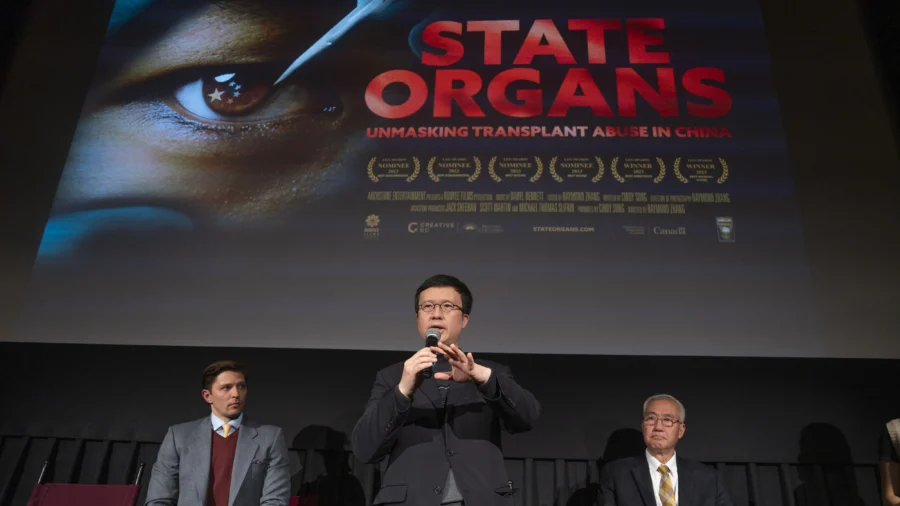NEW YORK—Audience members who attended a weekend screening of a documentary about forced organ harvesting said more people should learn about the sinister state crime that’s happening in China.
Nabil Hamati, a Brooklyn resident working in the medical field, told The Epoch Times that the film, which played on Nov. 9 at Village East by Angelika cinema, gave him perspective and made him thankful for the life he has in America.
He said that he didn’t know about China’s state-sanctioned practice of forced organ harvesting against prisoners of conscience before seeing the documentary, and he was particularly touched by the perseverance of the two families searching for their loved ones in the film.
“I mean humanity, since the time of Jesus, until now, hope is all we have. So if you don’t have hope, then you might as well just give it up and put it in the past. So it’s good that people have hope, they keep on going strong, and hopefully one day we can put [the Chinese] Communist Party in the past,” he said.
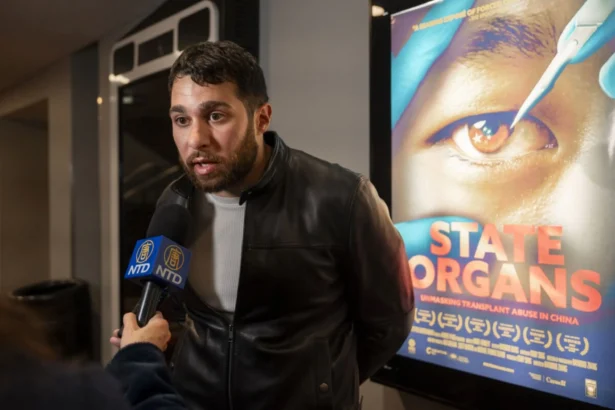
The documentary “State Organs: Unmasking Transplant Abuse in China” delves into the stories of Yun Zhang and Shawn Huang, who vanished under mysterious circumstances in China in the early 2000s, and the heart-wrenching journey of their families searching for them for over 20 years.
What the families uncover during their search for their missing loved ones is the horror of an organ-harvesting industry legitimized by China’s communist regime.
Hamati encouraged others to spread the word, saying it would inspire “the whole community of humans to work together to end something as big as this problem.”
His sister, Maya Hamati, said the film is “very informative.”
“I think the least we can do is to spread awareness about things of this nature,” she told The Epoch Times. “After World War II, we were told never again, but there’s been countless instances where the ‘never again’ has happened and it continues to happen.”
This is why films like this one should be talked about and understood, she said.
“Because the more we do that, I think the less room there is for more corruption.”
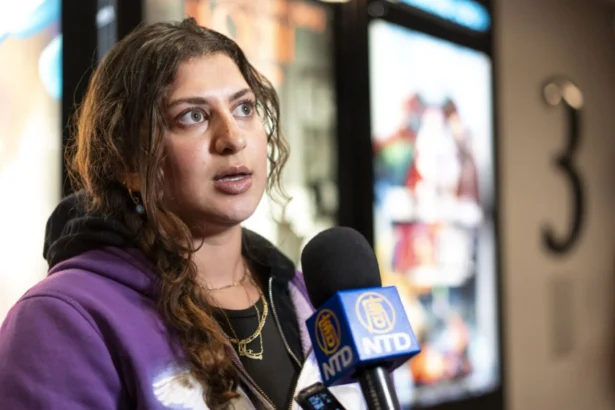
For decades, China has been one of the most attractive destinations for organ transplant tourists, as Chinese hospitals often offer unusually short waiting times for matching organs. This phenomenon is made possible because the Chinese Communist Party has built up an organ bank by forcibly and unethically harvesting organs from prisoners who were arrested for their beliefs.
‘Bring It to Light’
In 2020, a London-based independent people’s tribunal released its full judgment after an 18-month investigation. The tribunal found that it was beyond a reasonable doubt that the Chinese regime has been forcibly harvesting organs from prisoners of conscience for many years, with the primary victims being Falun Gong practitioners.
Falun Gong, also known as Falun Dafa, is a spiritual meditation practice based on the principles of truthfulness, compassion, and forbearance. It has been brutally persecuted in China since 1999.
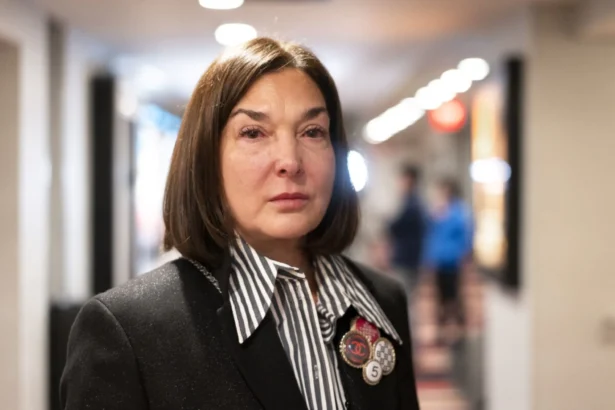
Lynne Dilorenzo, a business owner, was still tearful after watching the documentary. The film mentioned the account of a teacher who was tortured and sexually abused in prison before doctors took her organs.
That woman was likely dying “for somebody who’s probably rich, who could afford an organ,” she told The Epoch Times.
“Who are these people getting organs? Do they know how they’re getting the organs?”
Dilorenzo said watching the film made her feel “very, very heavy,” and she intends to make sure her family and friends know about this.
“Everyone needs to realize what’s going on, because it is a genocide, and we all need to bring it to light and [stop] it,” she said.
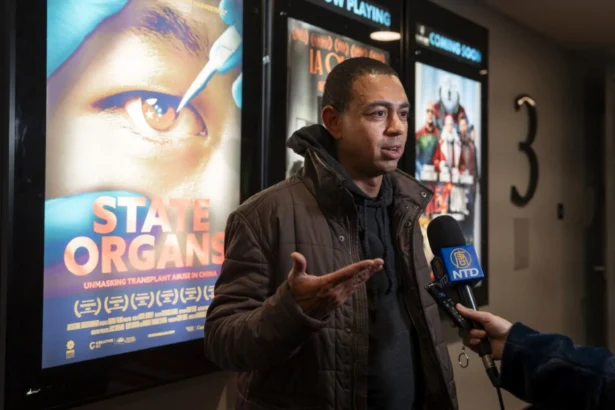
Kevin Dious, chief of staff to Reddit’s CEO, told The Epoch Times that it was “tragic and sad” to learn about the persecution in China.
“In this day and age, all the technology, all the media we have, that things like this can still happen and be hidden,” Dious said. “We have to tell these stories [and] the people need to know. And this is the power of film, that you can reach people in ways I guess the general media cannot.”
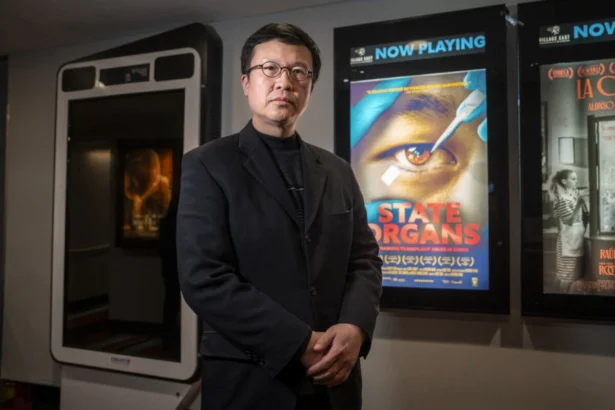
Following the presentation, the film’s director, Peabody Award winner Raymond Zhang, spoke to audience members in a Q&A session. He spoke about how several movie theaters in Taiwan received bomb threats for screening his film in October. Despite that, he said he had a lot of hope for Taiwan’s democracy.
Taiwan’s Criminal Investigation Bureau, in a statement issued on Oct. 9, said the bomb threats were sent from overseas IP addresses via a VPN proxy. The bureau said it had not found explosive devices in any of the movie theaters and urged people to stay calm.
In an interview with The Epoch Times, Zhang said he was born in China and still loves the land. His biggest hope is for the people there to “live a safer life,” he said.
Cinema Village in Greenwich Village, New York, is scheduled to screen the film beginning on Nov. 15.
From The Epoch Times

